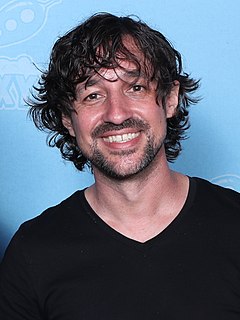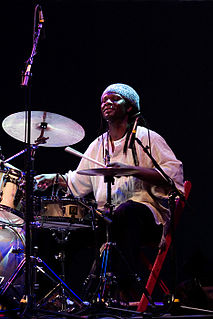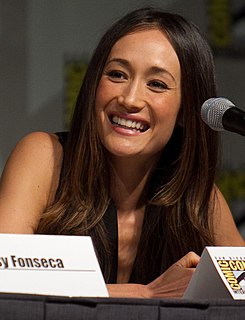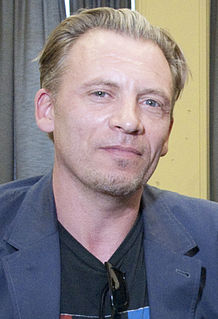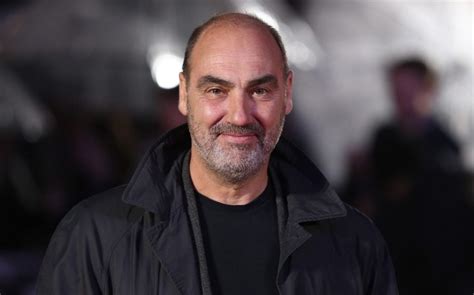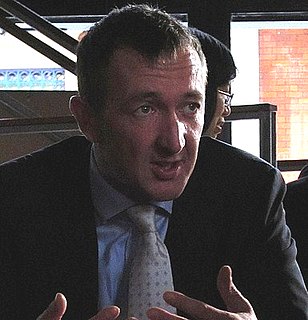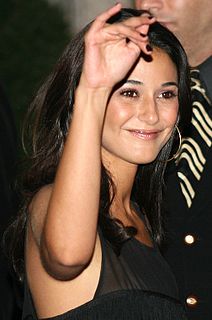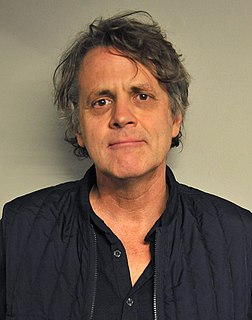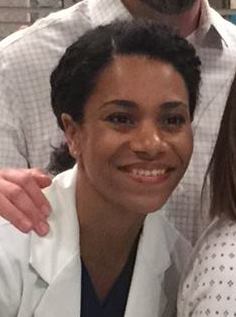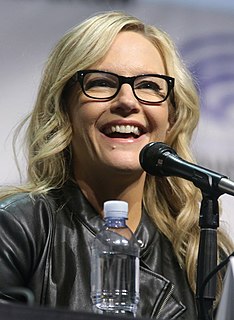A Quote by Seth Rogen
You can actually improvise a lot as a voice actor. It's not that entirely different than shooting a live action movie; the characters mouths are quite easy to manipulate once all the information is built into the computer. So you can improvise a lot and it doesn't matter really how far along they are in the process they can really just make the character say something different.
Related Quotes
We played around and improvised a ton [in The Hangover], and I think it's hard to say at this point what's what. Gosh, I wouldn't even know how to take a stab at it. The script was so good that we really didn't need to improvise very much, but I think we just found a lot of moments on the set. It's really cool when you get onto the set of a movie and you start shooting the scenes and you start to actually incorporate the environment.
Whenever I'm doing any film, there's always three different things. There's the script, which is really just a blueprint. And then, you shoot the movie and it's an entirely different experience than you would expect from reading the script. And then, there's the whole post process and the editing, and it becomes something else entirely.
When I started doing improvise music in Europe, in the beginning I thought the way that Europeans were interpreting the reconstruction of deconstruction of this thing that we call jazz - of course it's different than what Americans do, because Europeans have a different history, a different sensibility and so forth - the nature of the creative process itself it's the same; but what comes from that creative process is different, because you have a different history, you have a different society, different language.
I'm so excited about 'Shattered;' it's something I've really enjoyed working in, and it's very different from anything I've done before. I've always been a character actor and done a lot of support work. I've never really been the lead actor, so I'll try and use what I've learned along the way from the other projects.
The truth is that filmmaking is not really an actor's medium; it's really a director's medium, so all I can really control is the character that I'm playing. So I try to look for characters that are interesting and engaging and different than what I've done before and hopefully it becomes a good movie.
Well I liked the mixture actually. It's really good fun to have throughout a shoot to move from something which is quite character based in certain scenes where there's very little action and you're just working with actors and I suppose I've had quite a lot of practice at that. This is more action than I've had a chance to do so that was fun for me too to go into the action then and have some really good crew working with me. And sometimes you get these scenes where they blend.
You can say something that can really help and actor and you can say something that can really get in the way of an actor's performance, kind of cut them off from their instincts and really get into their heads. And every actor's different. Every actor requires something different. Being an actor, for me, was the greatest training to be a writer and director.
Mo-cap work is less technical than you'd expect. Once you have it all set up you're free to do the whole scene in one take rather than doing a lot of different shots and different takes like you do in a movie. You've got that one go at it and you've got a lot of freedom. You can really express yourself - more like doing theatre than doing a movie.
I'm surrounded by a lot of live-action movie professionals, and I'm just taking their lead, as far as what to schedule to do next. I'm guessing the challenge is going to be not having two characters together, and shooting the live-action without having the animation. In animation, you get to get in between every frame and you work it all out together.
Acting is a job you can learn a lot in. You get to play lots of different characters with different professions and different backgrounds; they come from different places than you do, so it's really fun when you're immersing yourself in that world of that person to learn about how other people's lives are.
In fiction the narrator is a performance of voice, and it can be any style of voice, but I'm interested in the ways that a voice that knows it's telling a story is actually telling a different story than it intends to. In the way that I can sit here and tell you what I had for breakfast, but I'm really telling you that I'm having an affair, something like that. And I don't think my writing is plain, but I think a lot of my characters are just talking. There is vulnerability there, in that we can start to see through them, we can start to see where they're deceiving themselves.


